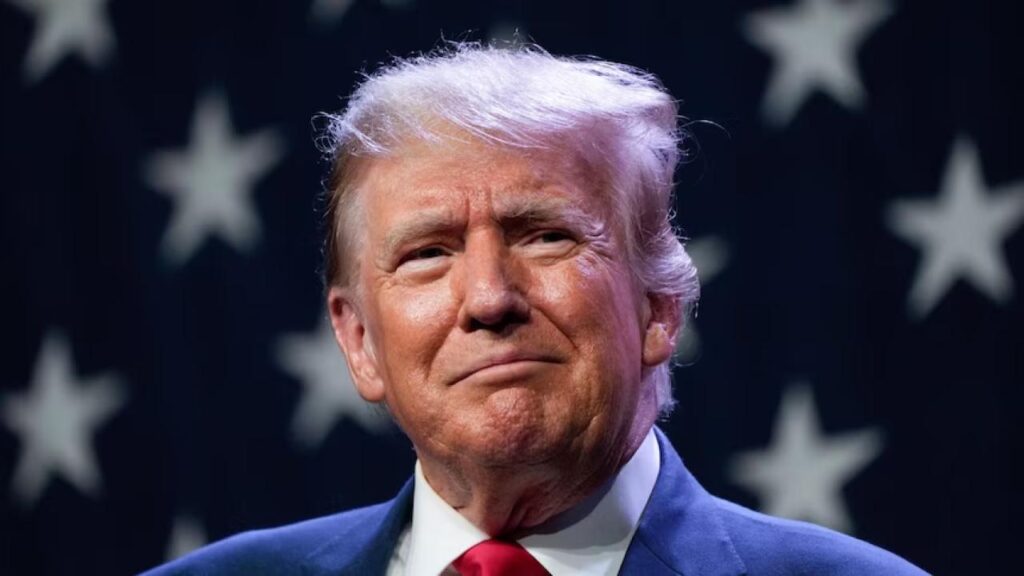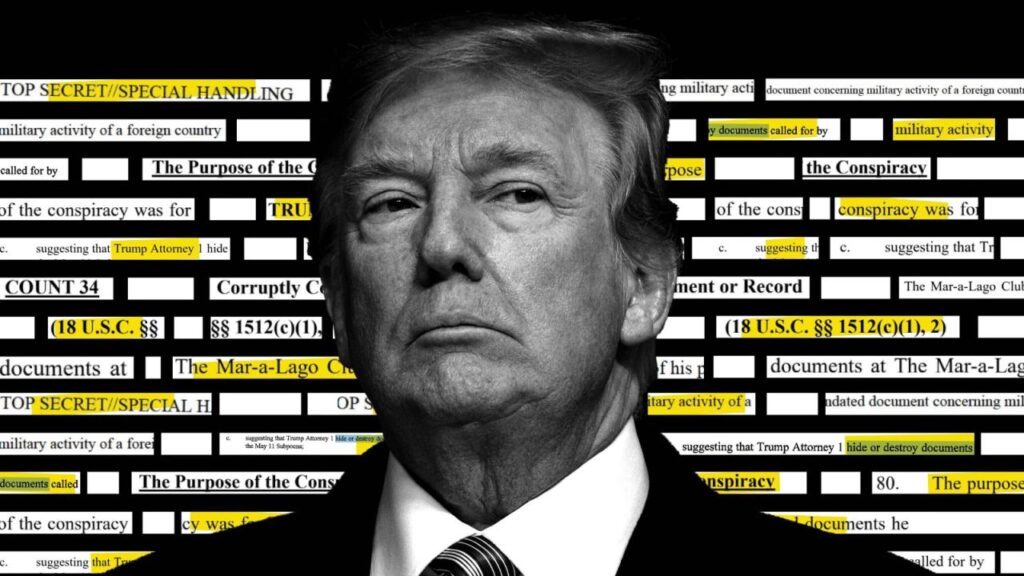When the Trump administration made a bold move earlier this year to cancel 5,000 legal documents held by Venezuelan immigrants under Temporary Protected Status (TPS), legal experts and immigrant advocates cried foul. On May 31, 2025, a federal judge stepped in with a clear message: “That’s not how the law works.”

In a decision that could ripple through U.S. immigration policy for years to come, U.S. District Judge Edward Chen blocked the administration’s move, saying Homeland Security overstepped its authority. This article breaks down the decision, the legal drama behind it, and what this means for migrants and immigration policy going forward.
Trump Tried to Erase 5,000 Legal Records
This isn’t just about 5,000 work permits—it’s about legal precedent, executive power, and human dignity. Judge Chen’s ruling sends a message: even in politically heated times, laws matter. And so do the lives built on them.
If you or someone you know is on TPS, now’s the time to:
- Get your paperwork in order.
- Stay informed.
- Prepare for possible appeals.
The immigration debate is far from over—but for now, the law is holding the line.
What Is TPS and Why It’s a Big Deal
Temporary Protected Status (TPS) is a special immigration program in the United States that lets people from countries in crisis stay here legally and safely—without fear of being deported. It’s like the government saying, “Hey, we know it’s not safe for you to go back home right now. You can stay here, work, and live legally until things get better.”
TPS is granted to people from countries facing:
- Armed conflict (like civil wars)
- Natural disasters (like earthquakes or hurricanes)
- Extraordinary conditions (like humanitarian or political crises)
For example, Venezuela was added to the list because of violent unrest, a collapsing economy, and government oppression that made it dangerous for people to return.
Here’s why TPS matters big-time:
- It’s not amnesty—TPS doesn’t lead directly to a green card or citizenship.
- But it does offer life-changing protections, including:
- A legal right to stay in the U.S. temporarily.
- The ability to work legally with a government-issued permit.
- Protection from deportation during the designated period.
As of 2025, there are over 400,000 people from more than 10 countries living in the U.S. under TPS—including nationals from Venezuela, Haiti, El Salvador, and Sudan.S, according to USCIS.
What Trump’s DHS Tried to Do
In February 2025, Trump’s new DHS Secretary Kristi Noem announced that 5,000 work permits and related documents—approved just before Biden left office—were being invalidated. DHS said these permits were part of a last-minute rush and didn’t meet “review standards.”
They called it “cleaning house.” But advocates saw it as a direct attack on legal protections granted to migrants. They accused DHS of overreach and politicizing humanitarian relief.
What the Judge Said—And Why It Matters
Judge Edward Chen didn’t hold back in his ruling. He said the administration’s action:
- Likely violated the TPS statute.
- Created unjust harm to people who followed the law.
- Set a dangerous precedent of canceling lawful documents retroactively.
Chen emphasized that changing administrations doesn’t mean you can erase what the previous one did—especially when people’s futures depend on it.
Wait—Didn’t the Supreme Court Just Side with Trump?
Yes, the U.S. Supreme Court recently sided with the Trump administration on key immigration issues, but the situation is nuanced.
On May 19, 2025, the Supreme Court allowed the Trump administration to proceed with ending Temporary Protected Status (TPS) for approximately 350,000 Venezuelans. This decision lifted a previous block by a federal judge, enabling the administration to move forward while legal challenges continue in lower courts.
Similarly, on May 30, 2025, the Court permitted the administration to terminate a humanitarian parole program that had granted temporary legal status to over 530,000 migrants from Cuba, Haiti, Nicaragua, and Venezuela. This ruling also reversed a lower court’s injunction, allowing the administration to proceed with its plans.

However, it’s important to note that these Supreme Court decisions did not address the legality of revoking specific documents already issued under these programs. For instance, a separate ruling by U.S. District Judge Edward Chen blocked the administration from invalidating 5,000 work permits for Venezuelans, stating that the TPS statute does not authorize the retroactive cancellation of such documents.
In summary, while the Supreme Court has allowed the Trump administration to end certain immigration programs, it has not granted carte blanche to revoke individual legal documents without due process. Legal challenges to specific actions, such as the cancellation of work permits, continue to be addressed in lower courts.
Impact on 5,000 Venezuelan Migrants
For now, these individuals:
- Keep their work permits and legal protections.
- Can’t be deported just because their permits were targeted.
- Can continue their lives, jobs, and education while the legal process unfolds.
This ruling is temporary, though. DHS may appeal, and the case could head to higher courts.
Why Trump’s Team Did This
Trump’s DHS argued that:
- The Biden-era permits were issued too quickly, without proper review.
- TPS was misused to expand immigration without congressional approval.
- They needed to tighten border and legal controls ahead of the 2026 midterms.
Critics countered that this was a legally shaky attempt to undermine a humanitarian program—and that it overstepped executive power.
Real People, Real Consequences
Take Carlos, a 27-year-old auto technician from Caracas now living in Florida. He came to the U.S. in 2021 after his family faced threats from paramilitary groups.
Carlos got his TPS permit in 2022. Since then:
- He got certified in auto repair.
- He’s working full-time and paying taxes.
- He sends money home to support his mom and siblings.
Without that permit? He’s at risk of losing everything. This ruling protects people like Carlos from being yanked into legal limbo overnight.
Legal Experts Weigh In
“This decision reinforces that legal status can’t be pulled like a rug,” said Sarah Klein, an immigration attorney with the National Immigration Justice Center.
She adds: “This ruling won’t stop all of DHS’s rollbacks, but it shows courts still play a vital role in checking executive overreach.” Expect this case to set a precedent—especially if other groups under TPS (like Haitians or Nicaraguans) are targeted next.
What Happens Next? Timeline of Events
| Date | Event |
|---|---|
| Feb 2025 | DHS cancels 5,000 legal TPS docs |
| May 19, 2025 | Supreme Court allows end of TPS |
| May 31, 2025 | Judge blocks the document cancellation |
| June–Aug 2025 | DHS likely to appeal |
| Late 2025 | Possible escalation to federal appeals or SCOTUS again |
Frequently Asked Questions (FAQs)
Q: Can TPS holders still be deported?
Generally, no—TPS holders are protected from deportation as long as their Temporary Protected Status is active and valid. That’s one of the main benefits of the program.
Q: Is TPS permanent?
Nope—Temporary Protected Status (TPS) is not permanent. Just like the name says, it’s temporary protection.
Q: Can DHS appeal the ruling?
Yes, the Department of Homeland Security (DHS) can—and has—appealed the ruling.
Q: Is this issue unique to Venezuelans?
No. Migrants from Haiti, El Salvador, Nicaragua, and others are also in TPS programs and could face similar actions.
Q: What should TPS holders do now?
If you’re a Temporary Protected Status (TPS) holder—especially from Venezuela—this is a critical moment. The rules are shifting fast, but the good news is: you’ve still got options, and there are steps you can take right now to protect yourself and stay informed.






